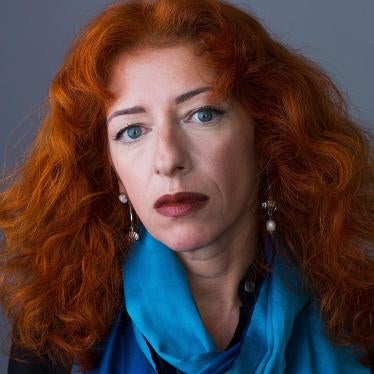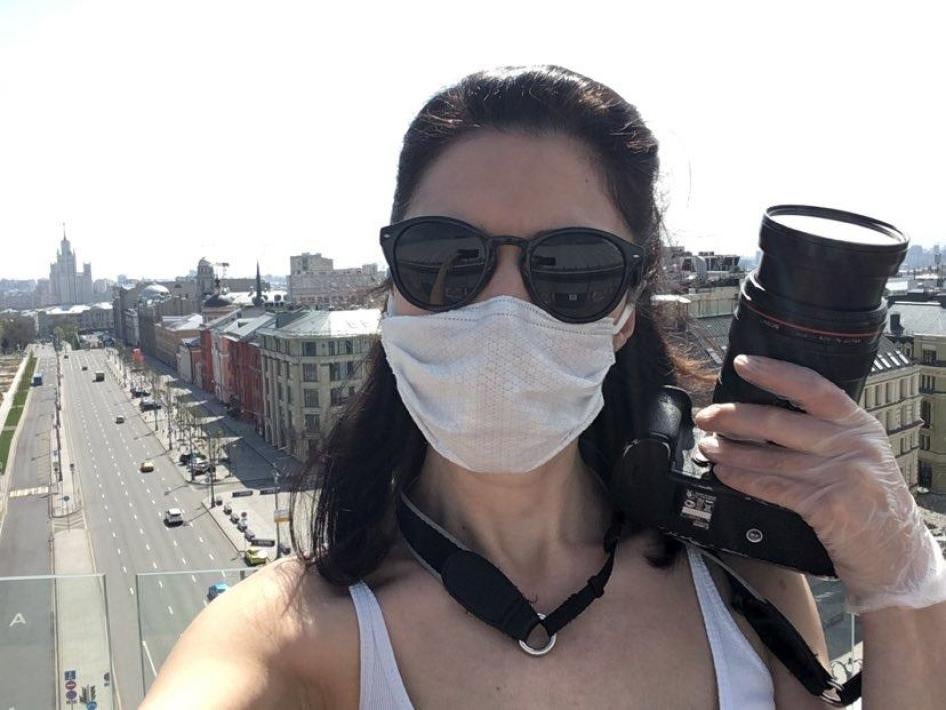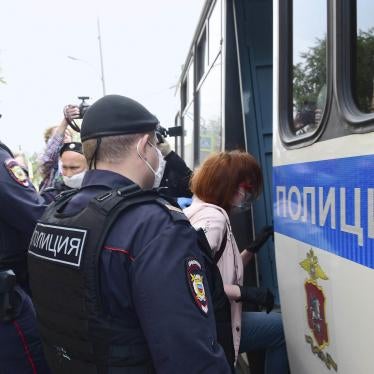Nigina Beroeva, a 37-year-old journalism instructor at the Russian Academy of National Economy and Public Service, shook off Covid-19 but it took her another week of relentless efforts to shake off the Russian bureaucracy that came with it.
On May 28, a doctor from a local outpatient clinic gave Beroeva a clean bill of health. However, because she is registered with numerous city agencies as infected with coronavirus, she could not leave her home without risking a fine and cannot get a QR code – a type of digital pass necessary to use a car or any form of public transportation.
When Beroeva attempted to get the pass the day after doctors pronounced her recovered, she received an automated response that she is still on quarantine and should stay home. Beroeva called the Moscow agency in charge of the passes. The operator suggested she get in touch with Russia’s Consumer Protection Agency (Rospotrebnadzor), which oversees quarantine regulations. When she eventually got through, the operator told her that she should instead reach out to Moscow’s Covid-19 headquarters. The headquarters’ representative helpfully suggested she call Rospotrebnadzor, and then told her to reach out to the city hall’s hotline or to the Russia-wide StopCoronavirus hotline.
The hotlines instructed Beroeva to get in touch with Rospotebnadzor, Moscow’s Covid-19 headquarters, the QR code service, and the agency in charge of the Social Monitoring program overseeing Covid-19 patients and people with symptoms of respiratory diseases. “I walked this circle twice. Then, called the clinic. They referred me to all of the above-mentioned agencies. I said, thank you but no thank you, explaining that it’s been done before.”
On May 31, her third day calling various agencies with requests to void her quarantine status, Beroeva, who still could not go out, asked her sister to go to the clinic and ask for help. The clinic said that their records listed Beroeva as fully recovered and could do nothing more for her. Innumerable calls to Moscow’s Health Department would not do the trick either: “Getting though to their hotline is simply impossible,” Beroeva wrote on Facebook. “When you call the number, a robot tells you to choose between “coronavirus” and “other issues.” When you choose the former, you get to listen to information about coronavirus transmission and blah-blah… If you opt for “other issues” you are put on hold and listen to music for about 20 minutes, then listen to long beeps for another 10 minutes, and then get disconnected.”
At some point, when speaking to a Social Monitoring operator, Beroeva emphasized once again that the health clinic had registered her as having recovered, the representative on the call said she felt for her and totally understood, because other “people have been calling and complaining that they cannot leave home [after getting a clean bill of health] for 10 days and longer.”
On June 2, Beroeva woke up as her doorbell was ringing. She found a policeman, a doctor from Rospotrebnarzor and some obscure “volunteer” on her doorstep, all of them in full viral protection gear. They said the police database and the database of Rospotrebnadzor both listed her as infected with Covid-19, so they came to check on her. Beroeva recounted her saga and showed them her antibody tests results, and the three complained that this was happening all the time. “Please help those who are sick and leave me be,” Beroeva pleaded with the authorities. She just could not take this anymore and there seemed to be no end in sight.
Many countries have imposed lockdown regimes to protect against the spread of Covid-19. In circumstances such as this global pandemic, imposing limited lockdowns are well within governments’ rights. But lockdowns are not a carte blanche to violate rights, including to privacy. They need to be necessary, proportionate, and lawful.
The government’s reliance on a flawed automated system to decide whom to quarantine and for how long has placed a colossal burden on people not least in their struggle with bureaucracy. Errors in the QR code system, coupled with the lack of a clear process to challenge its automated decisions, are confining residents to their homes long after they have recovered. A balance needs to be struck between public health and freedom of movement, and Russia clearly has yet to find it – in fact, automation is unnecessarily restricting people’s movements under the guise of public health.
When Beroeva fell ill she strictly followed the quarantine regulations, which required her to stay put for the duration of the illness. Once the medics recognized her as fully recovered, she reasonably expected to return to straight away normal life – to work, move around, interact with people. And she had the right to do just that. But instead, she found herself locked in vicious circles of the city’s quarantine bureaucracies, fighting a Kafkaesque automated system that wouldn’t let her out of the house.
From May 29 to June 5, Beroeva spent every day on the phone in desperate attempts to overcome the deeply dysfunctional bureaucracy. “[Everyday all day] I listen to Vivaldi and Brian Adams on my phone,” she said. “And there’s no way I can just relax and wait [for quarantine status to be void, the way it should be]. There’s no deadline, no set confinement period… You can sit and wait interminably, because they [locked you down and] simply forgot to unlock you,” she wrote on Facebook.
It was only today that Beroeva, finally managed to beat the system and get her life back. “It’s rather insane that the possibility of having a pass to go outside makes me so happy,” she told me. First thing she did was going for a long run. Though rejoicing in this newly acquired freedom, she cannot stop thinking of “hundreds of others who are still stuck” fighting the same exhausting battle and sinking into despair.









